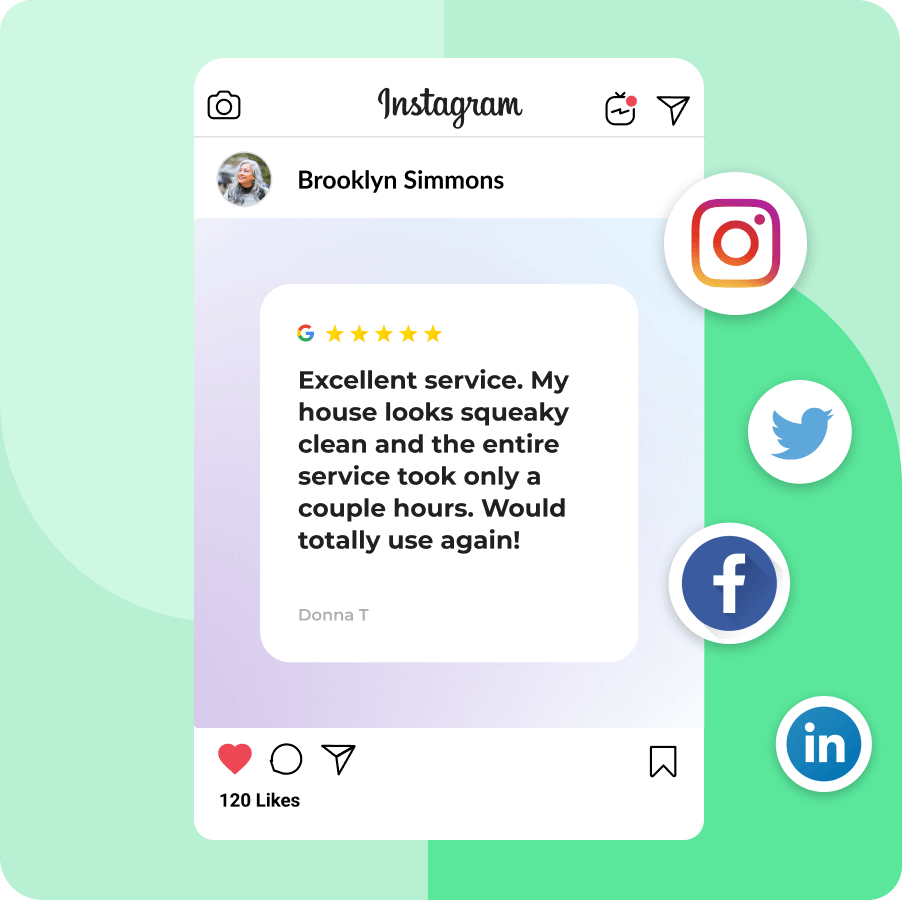•
Blog
If you’re serious about growing your business, we’re about to let you in on a few secrets that are so simple, anyone can do them. But here’s the thing, many will not.
Which makes it all the more reason to take advantage of these strategies using online reviews to grow your business.
It’s no secret that most businesses should have a presence on Google My Business (GMB) along with a Facebook page.
If you think you have reviews but can't see them, here's what you need to do when Google reviews aren't showing up.
But there are literally hundreds of other business directories and review sites to consider, many of them being suitable to also manage your visibility and reputation on.
So how do you identify which make the most sense to engage with? Start by creating a list of 5 to 10 direct competitors. Look them up, and note any review sites they’re appearing on. A quick search on Google will provide the answers. Be sure to go to page 2 and 3. Also, take a look at what the competitors pursue in terms of keywords.
Often it’s sites like HomeAdvisor, TripAdvisor, FourSquare or Avvo, depending on what business you’re in, that will dominate the search results. Be sure to try this using ‘best’ as well. If you’re a restaurant, try something like ‘best pizza’ or another food, and add your city.
You don’t have to pursue every business directory or review site you find, but once you’ve completed a competitive analysis with a little searching and sleuthing you’ll be able to drill it down to 2-4 in addition to Google and Facebook.
Most are selective when it comes to responding to reviews, which is the wrong approach. Rather than cherry picking the occasional one, make it a habit to respond to all of them. Since your responses are visible, it pays to engage. This demonstrates a genuine interest in your customers, as well as a concern for the less satisfied ones.
You can differentiate your business by doing this, because maybe 30% take the time to respond to any reviews. It will certainly make you stand out, and likely earn you more business. Along with being on top of review management, you’ll also learn from your customers as well. You can use reputation management software to make this easy.
When you have happy customers, most are willing to provide a positive review when asked. But the thing is, most businesses don’t ask, which is truly a missed opportunity. In one study, it mentions that 9 out of 10 satisfied customers are willing to provide an online review when asked to do so. Since most businesses fail to ask (in addition to responding to reviews) this is yet another opportunity to take advantage of.
The challenge of managing online reviews isn’t just requesting them, but managing all the requests, because more often than not many of your customers will require a few reminders. So if you were sending 5 requests on Monday, and the same all week, by Friday you have 25 requests out. Come next week, you’ll be sending another 5 a day, but need to remind those from last week as well. It quickly adds up by the second and third week.
Which is why a reputation management tool like NiceJob comes in handy. It’s automation enables business owners to have more time for taking care of and growing their business.
NiceJob’s set-and-forget review software automatically gets you reviews and shares them on Facebook, Instagram, and more so you can become top rated.
Start Free
The customer experience isn’t to be under estimated, it’s one of the single most controllable aspects to retaining customers, and creating word of mouth referrals for your business. At the same time, there’s always the occasional dissatisfied customer, and how you respond to negative reviews is an opportunity to develop relations, increase business, and manage your reputation.
When the positive reviews start rolling in, this is your chance to share on social media. In addition to providing more content to share, helps retain top of mind awareness with your followers, and possibly pick up some new ones along the way.
If you want to be completely transparent, take the time to share the successes where you had responded to a dissatisfied customer and managed to resolve the issue and turn them into a happy customer. This sort of transparency, even with an agenda, can be appreciated.
To effectively implement the reputation management and online review strategies mentioned, the key is consistency. You have to manage, monitor and maintain.
While you won’t see an immediate advantage, those that do stick with this state that there measurable results that do have a positive impact on their business.
Managing your reputation is not only good for business, it also provides social proof for customers on the fence about choosing to deal with your company, and builds trust as well.
In addition to online reviews, other forms of social proof to consider for your marketing strategy could include customer testimonials, influencer endorsements, growing your social media following, and even awards or recognition at times, which are also useful to share on social media.
While it isn’t recommended that you try to incentivize online reviews because it goes against the terms of service with Google and others, there’s another option to consider. By not mentioning any benefits and simply asking for reviews, and then offering something of value to random customers that might have left you a positive review, you would be simply saying thank you since it was not a prior incentive in exchange, but a gift of gratitude such as a coupon for next visit or similar. There’s a distinct difference between the two. By offering such a reward, you’re on the path to building loyalty with small random acts of kindness.
Keep in mind, while the majority now share this same info, most won’t execute. If you’re serious about growing your business, online reviews are one of the most cost efficient and effective ways of doing, and implementing the above suggestions could be your opportunity.
Grow your business with NiceJob's review generation software, effortlessly boosting reviews, traffic, and sales.
Start Free
